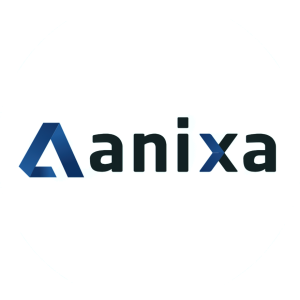Anixa Biosciences Treats Sixth Patient in its Ovarian Cancer CAR-T Clinical Trial
Rhea-AI Summary
Anixa Biosciences has treated the sixth and final patient in the second dosage cohort of its Phase 1 clinical trial for an ovarian cancer CAR-T therapy, partnered with Moffitt Cancer Center. If no adverse effects are observed, the third dosage cohort, with a tenfold increase in dose, may commence next month. The trial focuses on evaluating the safety and efficacy of Anixa's FSHR-targeting CAR-T technology. The first cohort showed no dose-limiting toxicities, and a notable response from one patient was observed despite the subtherapeutic dose. The second cohort, receiving triple the initial dose, also reported no dose-limiting toxicities. The therapy involves intraperitoneal delivery, which potentially minimizes side effects and enhances targeting efficacy.
Positive
- The sixth patient in the second dosage cohort was treated successfully.
- No dose-limiting toxicities were observed in both the first and second cohorts.
- A notable patient response was observed in the first cohort despite a subtherapeutic dose.
- The third dosage cohort will test a dose ten times higher than the initial dosage, indicating progress in the trial.
Negative
- The trial is still in Phase 1, and efficacy is yet to be conclusively demonstrated.
- The therapy is to patients who have already progressed on at least two prior therapies, indicating a high-risk patient group.
News Market Reaction 1 Alert
On the day this news was published, ANIX declined 0.79%, reflecting a mild negative market reaction.
Data tracked by StockTitan Argus on the day of publication.
This patient is expected to be the final patient in the second dosage cohort of the trial
Anixa's FSHR-mediated CAR-T technology, also known as chimeric endocrine receptor T-cell (CER-T), differs from traditional CAR-T therapy by targeting the follicle-stimulating hormone receptor (FSHR), which research indicates is exclusively expressed on ovarian cells, including the vasculature of tumors. The first-in-human trial (NCT05316129) is enrolling female adult patients with recurrent/progressing ovarian cancer who have progressed on at least two prior therapies. The study is designed to evaluate safety and identify the maximum tolerated dose, while monitoring efficacy.
Safety was previously confirmed in the first three-patient cohort. The fourth through sixth patients, enrolled in the second cohort of the Phase 1 clinical trial, received triple the dose of CAR-T cells compared with the dose of the first cohort, with no dose-limiting toxicities observed.
Following the requisite wait time, of one month after dosing, enabling confirmation that it is safe to escalate, the trial will immediately begin enrolling patients in the third dose cohort, which will be at a ten times higher dose than the initial dosage.
Dr. Amit Kumar, Chairman and CEO of Anixa Biosciences, stated, "We are highly encouraged by the favorable safety profile observed thus far in both the first and second patient cohorts, and are eager to evaluate a higher dose in the next cohort. We are particularly encouraged by a notable response in one of the patients in the first cohort, even though the dosage was considered a subtherapeutic level. Our aim is to maintain a positive safety profile as we escalate dosing, with the goal of demonstrating additional objective evidence of efficacy. Unlike conventional CAR-T cell therapies, which have achieved amazing results in various hematological cancers, they have not been effective in solid tumors. In contrast, we believe Anixa's novel technology has the potential to make CAR-T effective in ovarian cancer and perhaps across multiple solid tumor types. Our unique and highly targeted CER-T approach targets the FSHR, which is exclusively expressed on ovarian cells. A potential dual mechanism of action is operating with our therapy targeting tumor vasculature by starving or shrinking the tumor from the inside out, as well as direct targeting of ovarian cells."
Dr. Kumar continued, "We believe that intraperitoneal (IP) delivery may also be a significant advantage of our therapy, as it allows direct trafficking of the CAR-T cells to the tumor sites, which helps to minimize side effects such as cytokine release syndrome (CRS). We believe this method of delivery not only enhances the targeting of the tumor but also improves the overall safety profile of the treatment. We expect that IP delivery may enable us to use dosages that are much higher than possible with intravenous delivery."
About Anixa Biosciences, Inc.
Anixa is a clinical-stage biotechnology company focused on the treatment and prevention of cancer. Anixa's therapeutic portfolio consists of an ovarian cancer immunotherapy program being developed in collaboration with Moffitt Cancer Center, which uses a novel type of CAR-T, known as chimeric endocrine receptor T-cell (CER-T) technology. The Company's vaccine portfolio includes vaccines being developed in collaboration with Cleveland Clinic to prevent breast cancer – specifically triple negative breast cancer (TNBC), the most lethal form of the disease – and ovarian cancer, as well as additional cancer vaccines to address many intractable cancers, including high incidence malignancies in lung, colon, and prostate. These vaccine technologies focus on immunizing against "retired" proteins that have been found to be expressed in certain forms of cancer. Anixa's unique business model of partnering with world-renowned research institutions on all stages of development allows the Company to continually examine emerging technologies in complementary fields for further development and commercialization. To learn more, visit www.anixa.com or follow Anixa on Twitter, LinkedIn, Facebook and YouTube.
Forward-Looking Statements
Statements that are not historical fact may be considered forward-looking statements within the meaning of the Private Securities Litigation Reform Act of 1995. Forward-looking statements are not statements of historical facts, but rather reflect Anixa's current expectations concerning future events and results. We generally use the words "believes," "expects," "intends," "plans," "anticipates," "likely," "will" and similar expressions to identify forward-looking statements. Such forward-looking statements, including those concerning our expectations, involve risks, uncertainties and other factors, some of which are beyond our control, which may cause our actual results, performance or achievements, or industry results, to be materially different from any future results, performance, or achievements expressed or implied by such forward-looking statements. These risks, uncertainties and factors include, but are not limited to, those factors set forth in "Item 1A - Risk Factors" and other sections of our most recent Annual Report on Form 10-K as well as in our Quarterly Reports on Form 10-Q and Current Reports on Form 8-K. We undertake no obligation to publicly update or revise any forward-looking statements, whether as a result of new information, future events or otherwise, except as required by law. You are cautioned not to unduly rely on such forward-looking statements when evaluating the information presented in this press release.
Contact:
Mike Catelani
President, COO & CFO
mcatelani@anixa.com
408-708-9808
![]() View original content to download multimedia:https://www.prnewswire.com/news-releases/anixa-biosciences-treats-sixth-patient-in-its-ovarian-cancer-car-t-clinical-trial-302179663.html
View original content to download multimedia:https://www.prnewswire.com/news-releases/anixa-biosciences-treats-sixth-patient-in-its-ovarian-cancer-car-t-clinical-trial-302179663.html
SOURCE Anixa Biosciences, Inc.










